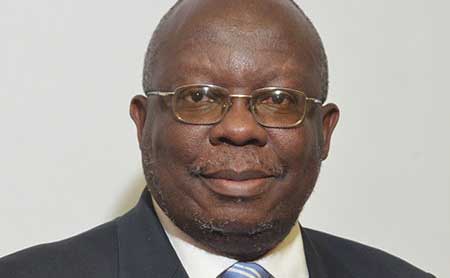- Says COVID-19 plight presents an opportunity to change Botswana economy
- As BB and UNDP partner to aid the private recuperate from COVID-19 effects
TLOTLO KEBINAKGABO
The damnable COVID-19 pandemic must be seen as a pivotal moment to change Botswana‘s economy from the way it was before the pandemic happened, a COVID-19 recovery plan for the private sector prepared by Business Botswana (BB) and United Nations Development Programme (UNDP) shows.
Just like it is in many countries, the businesses in Botswana have experienced the full impact of the COVID-19 crisis which is likely to produce devastating economic effects for the country, with a projected GDP loss of 10 to 15 percent as according to the report.
With that, BB together with UNDP intends to use the COVID-19 crisis as an opportunity to become the proactive driving force in creating an economy that is more dynamic, divers, inclusive, ecologically friendly and resilient. The private sector recovery plan is therefore considered the steppingstone towards achieving that.
The plan which has been prepared by BB and UNDP is informed by one overall guiding objective: to Build Back Better, with the private sector acting as its own driving force.
“This will see us embark on a new way of doing business in Botswana, developing away from what was in place before the global economic crisis and forging a new path,” the recovery plan report states. “ The plan is the private sector’s idea of what it will take to not only restore the economy back to its pre COVID-19 trajectory but rather to move it towards the high-performance path. The overarching goal is to create a private sector that is inclusive, more dynamic, diverse and self-reliant, greener and resilient, as well as underpinned by technological advancements.”
BB and UNDP wants to see the private sector relying on itself as the driving force in proactively changing the economy and helping to create more conducive ecosystems for entrepreneurs, supporting aspiring entrepreneurs and actively developing local supply chains. “The inclusiveness targets youth and women,” the report states. “While there are ample opportunities for youth and women to tap into for becoming entrepreneurs, the eco-system is however not in their favour and does not address their needs.”
According to BB Chief Executive Officer (CEO) Norman Moleele, they will develop and implement programmes as well as projects that will ensure that the private sector leads in addressing many of the priority areas identified in the plan.
“It is our duty as the private sector to lead on skills development to meet our growth and competitiveness needs,” he said in the report. “We must lead on technological and competitiveness upgrading, investment in the identification, nurturing and development of young entrepreneurial talent, the integration of SMEs into the supply chain management strategies of large firms, helping even the odds to ensure that women entrepreneurs enter and compete in traditionally male dominated businesses, and in directing corporate social investment towards impact investments such as impact incubators.”
For her part UNDP Resident Representative in Botswana Jacinta Barrins noted that the essential features of their plan include high productivity, global competitiveness and exports of value-added goods. “It suggests that for Botswana to achieve the levels of growth and economic transformation required to meaningfully and sustainably resolve the problems of poverty, unemployment and relative economic exclusion of youth and women in particular, it will have to make some major strategic strides,” she said.




